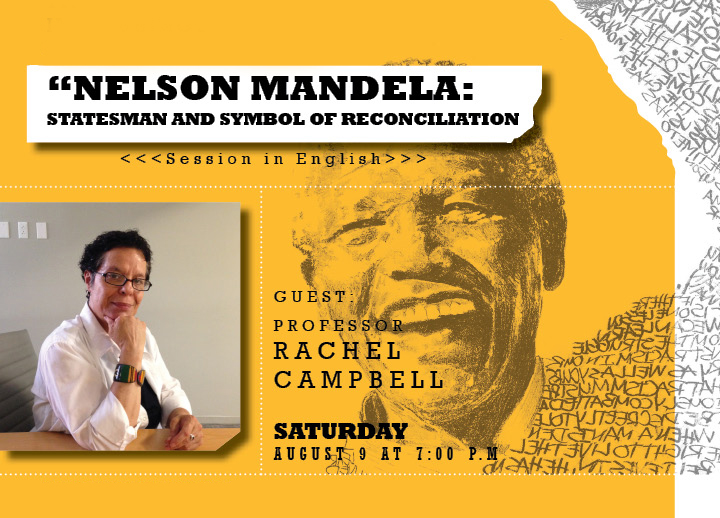
Saturday, August 9 at 7:00 PM titled:
“Nelson Mandela: Statesman and Symbol of Reconciliation”
Speaker: Professor Rachel Campbell
Presenter: Jabbar Ghadhban, Media and Public Relations Specialist,
Abstract:
Nelson Mandela’s willingness to sacrifice his life for what he believed in – freedom and equality for all South Africans – epitomized the nature and character of this global icon. He became a legend in his own time and his struggle gained worldwide recognition and acclaim. His stoicism, combined with his statesmanship and notwithstanding his flair for the dramatic, allowed him to see beyond his personal struggle and sacrifice – including 27 years in prison – because he was convinced that one day the best of humanity would prevail over the worst. He was a man of quiet dignity and despite his public persona, a very humble and pragmatic individual that allowed him to stay focused on his mission – to bring an end to the apartheid regime in South Africa.
Mandela was a man whose radiant smile and immense sense of humor informed his quest for equality and his struggle for equal rights for all South Africans. He was a rare visionary who was able to inspire his enemies to become better people by personifying both forgiveness and reconciliation in his pursuit of freedom. The Truth and Reconciliation Commission he established during his first year as President is a great model for achieving justice in nations where human rights abuses occur. It proved to be a valuable forum that can be emulated wherever national and individual trauma needs to be confronted and acknowledged, so the healing process can begin.
Mandela helped to unite South Africa as it dismantled apartheid, the cruel system of white minority rule that disenfranchised the majority, without alienating the dominant group. He symbolized for Africa and the entire world the reality that one person can make a difference. His commitment to democracy and freedom in the face of daunting odds is a testament to his determination and unwavering belief in the rights of all people to participate in the democratic process.